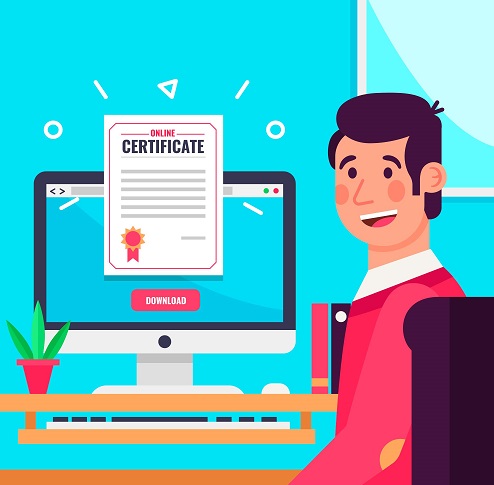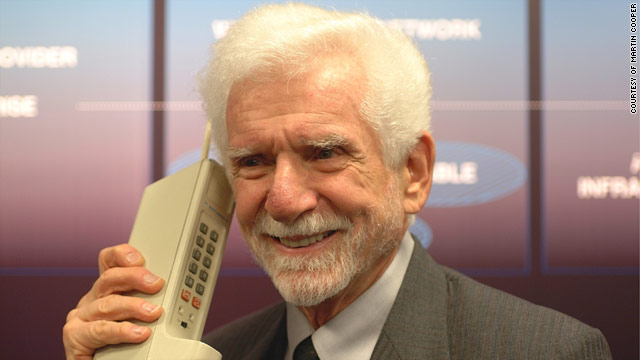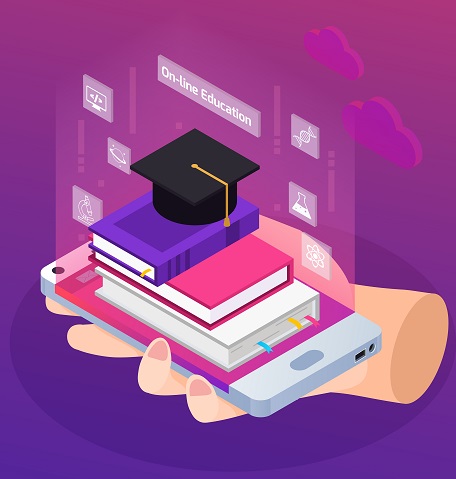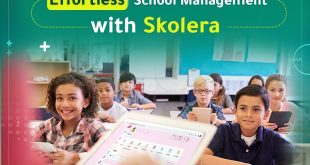Mobile learning has paved the way for a new era of ubiquitous learning. With the current advancement in technology and considering the recent worldwide emergency of COVID-19, many educational institutions have been forced to convert to online learning.
Nevertheless, more attention has been recently directed towards the use of mobile phones in learning. Mobile learning has proven its efficiency over physical education.
Being one of the modern learning methods, many courses and training materials about mobile learning have been recently given to learners all over the world.
As is case in anything newly introduced, mobile learning has advantages and disadvantages. However, according to recent events, conferences, and research articles in which mobile learning is overly discussed, the advantages are much more dominant.
Get started Skolera for FREE
Table of Contents
Technology in Education Enables Learning and Development
To provide an in-depth knowledge about mobile learning, we have to shed some light on virtual learning.
Virtual learning is an educational environment in which teachers and students can establish communication, interaction, and collaborative learning (here are 5 Qualities to Be Your Students Favourite Teacher).
It is something beyond physical education. If you have a laptop, a computer, or a smartphone, and you have a good Internet connection, congratulations! You can start your virtual learning process immediately.
Virtual learning can be performed by either a video or an audio conferencing through using the best learning apps.
Virtual Classroom vs. Physical Classroom
Although the virtual and physical classrooms differ in terms of tools and methods, they undoubtedly share the same educational goals.
On one hand, in a physical classroom, a student is able to see the teacher and classmates physically. He/she has all the learning materials at hand.
The teacher provides them with hands-on activities. A physical classroom session is known as an “instructor-led” session.
It means that the teacher is in control and has all the cards.
On the other hand, the virtual classroom is known as a “student-centered” class. It opens the gate for more engagement and interaction from students.

Credit: Freepic
In a virtual classroom, the teacher also uses a digital white board as in the physical classroom. He/she can upload all the working sheets, videos, and audios for all students to see at the same time.
A virtual classroom has also tools for class control as in the physical classroom. Some educative apps provide the teachers with the option of muting/unmuting a student’s voice and also with the “raising hand” option that allows students to speak only when they are permitted to.
Due to the clear advantages of the online learning methods in education, many school managers (read The 2020 Guide to School Management System) have started applying virtual learning through using trusted teaching apps.
The Father of the Cell Phone: Door to Mobile Learning
Martin Cooper, a holder of Master’s degree in electrical engineering from the IIT, is nicknamed as the “Father of the Mobile Phone.”
He is the one who initiated this worldly change that has impacted all aspects of life.
Working in the research and development department of Motorola and diving into the wireless communications industry enabled him to introduce Motorola’s first cell phone.

Credit: CNN’s Special by Tas Anjarwalla
Later, he left Motorola and founded his own company that became one of the main competitors of his former company.
In fact, Cooper succeeded in changing people’s life in a 180 degree turn. He was able to increase connection among people and hence improve their productivity.
It is worth mentioning the following quote about mobile learning in his 2019’s article, Research Gate:
“We predict a society in which mobile-phone-enhanced education occurs 24 hours a day everywhere-not just in the classroom.”
What is Mobile Learning?
Mobile learning is a new way for delivering learning content through smartphones, tablets, iPhones, PDAs, etc.
Imagine that you are a student who is out for a few days trip and you do not have a laptop? Then, your teacher posts an important note on the school app (know more about the Best Features of the Teacher’s Interface in Skolera learning management system).
How will you know about it if your school app is not mobile-friendly? Here, mobile learning apps have come to make our life much easier.
They act as a mediator between teachers and students. Students can access the school communication app from their mobile phones anytime and anywhere.
Have a look now at our Skolera YouTube Channel to learn more about mastering mobile learning apps and virtual learning in school.
Join Skolera Now for FREE
1. Advanced Mobile Phone’s Features in the Widespread Use of Mobile Learning
1. The Camera
Students can use the mobile camera during educational trips to take photos that they need in their research and graduation projects as in the field of architectural engineering.
They do not have to upload them to their PC, computer, or laptop for exchange with their colleagues.
They can just exchange these photos through using one of the mobile phone’s communication apps.
They can also use the video option to make a presentation instead of wasting a very long time writing word documents or making a PowerPoint presentation.
2. Internet Access
The most popular Internet browsers can now be installed as apps on mobile phones, a fact that has laid the first stone for effective usage of Internet in education.
This makes the research process run smoothly since students can easily gather data at any time and at any place.
3. M-Learning Needs Storage
Having a cell phone with enough storage is crucial in using modern portable devices in education.
Students can download e-books, educational videos, and many other learning materials.
4. Microsoft Office Availability
It is very promising to have Microsoft Office app on some advanced smart phones, despite the fact that it needs more development to equal its PC efficiency.
2. What are the Differences between Mobile Learning and Online Learning?
Seymour Papert said “You can’t teach people everything they need to know. The best you can do is position them whether they can find what they need to know when they need to know it.”
E-learning is a time-consuming process. Learners have to stay for a long period of time watching or listening to acquire the information they need.
However, mobile learning provides learners with bite-sized information. Therefore, they can get what they want in almost half of the time that e-learning might require from them.
Additionally, this type of electronic education or micro-learning demands an appropriate setting for your laptop, computer, or PC.

On the contrary, m-learning enables you to learn at any place even when you are on a taxi or a flight. For more about this you may check Nilcan and Ferid’s article about the difference between e-learning and m-learning.
Mobile Learning facilitates the interaction between students and their teachers (Have you read our article Classroom Management Technologies: 5 Need to Know Things Now?) as feedback can be easily received during a session.
You can just get the information and have an assessment at the same time. However, in e-learning, there is a gap of time between getting the information and being prepared for putting this information into practice.
Many edapps depend on new learning methods and not just offering content to read or an instructor to listen to.
They offer new styles that are appropriate for the students’ way of thinking like gamified learning, videos, and audios.
3. What is Distinct about Mobile Learning in Education?
M-learning benefits have been brilliantly clear nowadays. For example, distance is not something to be considered in m-learning as the students can study from any place all over the world.
Time is not an issue to be considered too as the learning content is accessible at any time.
M-learning also reduces stress especially in quizzes. Having a quiz at home while drinking a cup of coffee is much less stressful than having it at school where you have to follow some restrictive rules.
In general, online learning immunes the students with a wider variety of the online educational hubs which enable them to widen their knowledge.
James Thomas has mentioned this advantage in his article about the advantages and disadvantages of mobile learning.
Additionally, one of the benefits of m-learning is that it reduces frustration as not all students can learn the same way.
“Technology is enabling our need to be mobile. We want to ensure that learning matches our lifestyle.” —Tony Bingham, President and CEO of the Association for Talent Development, formerly ASTD.
People no longer have the possibility to stay for a very long time on a laptop or computer watching a session to get the information they need.
4. Mobile Learning Has Drawbacks Though
The context in which this educative learning method is used must be taken into consideration. For example, in the rural community, the availability of good Internet connection may be somewhat poor in some countries.
Also, there might be some electricity issues. The usage of advanced smart phones and tablets in the rural community is not as wide as in the urban community.
Another drawback for m-learning is that there may be some distractions during the learning process as students may receive social media notifications that they are forced to open and check.
Here comes the role of parents who should train their children on how to distinguish between using mobile in education and using it in entertainment.
Last but not least, students and teachers may encounter software or hardware problems during a session or in having a quiz.
For example, watching a small screen and using a mobile phone’s keyboard may not be as smooth as using a computer or a laptop or this may vary according to the type of the mobile phone itself.
However, recent mobile education apps are designed with specific features to be mobile-friendly and to break down some of the above-mentioned barriers.
Skolera YouTube Channel offers you many educational videos on using mobile learning, creating a virtual classroom if you are a teacher, managing your school successfully if you are a school administrator, and follow up on student’s performance if you are a parent.
Create Free Account
5. Mobile Learning within the Classroom
Many countries all over the world have started to apply mobile technology in education. Most of the online educational applications can now be installed on smart phones and tablets.
Students are able to search for any information they want using their smartphones instead of having to go to the school library and get buried in books.
Moreover, teachers can upload all teaching materials on the learning app so that they can be available for students permanently and to save the time that may be spent in printing out papers for all students.
This way, students will be able to access the teaching materials including images, worksheets, videos, and audios at any time and at any place even in bed.
Also, students do not have to write their own research papers and long essays and then proceed with printing. Instead, they can make a ten-minute video or audio discussing their research topics and the assignment is over!
This saves time and effort and makes the learning process more interesting for both teachers and students.
Another important benefit that should be mentioned is that a teacher can contact parents through a school learning app by sending messages and parents receive notifications for these messages.
This also saves time parents’ time as they do not need to go to school and discuss a specific matter with the teacher.
6. Mobile Learning: How Good Is It?
Mobile learning saves efforts for students as they can send their homework to teachers for correction through the e-learning app instead of having to carry it as a hard copy.
In a similar way, this facilitates the teaching process for teachers as they do not have to stay at school for a long time correcting quizzes and homework.
Exams schedules, announcements of trips, and important events can also be posted on the school app.
This video for Mohamed Ally, a Professor at Athabasca University, about the importance of mobile learning is worth watching:
7. Exploring Mobile Learning Advantages with Skolera School App
1. Mobile in Education: Parents View
In no way can the best learning apps ever replace face-to-face communication. However, it definitely saves a lot of time and energy, doesn’t it?
Learning management system school apps, e.g., Skolera, help parents have an overall view of the whole educational process their children pass through. Skolera LMS app is, essentially, more of a school communication app for parents.
Announcing a parents meeting, alerting a parent of a behaviour note, notifying them of progress, growth, strengths, or weakness points, keeping them informed, asking them questions, immediately responding to any concerns, all of this is something school managers can offer parents when acquiring Skolera!
2. Skolera LMS Teachers App
According to Carol A. Gooch, M.S., LPC, LCDC, LMFT, a mental health professional and a former school teacher and school counselor, it’s extremely essential for teachers and parents to communicate together for the benefit of the student: their shared goal.
Both parents and teachers have a different set of knowledge that put together are a wonder to the child’s growth.
One the one hand, teachers have knowledge of teaching strategies, classroom management, and educative learning policies.
On the other hand, parents have detailed background knowledge on the student. The physical, mental, and social history of the student is filled in by the parents. Therefore, Skolera encourages the positive collaboration of both sides by providing the technology to do just that.
Here are some of the benefits of Skolera’s teachers app in facilitating communication between parents and teachers:
- Attendance: smoothly and quickly checking students attendance one by one (checking absent, late, etc.)
- Grading Assignments: submitting feedback on assignments or quizzes through pop-ups
- Posts: Immediately sharing videos, links, or educational files with students
3. Student on Mobile
- Easily communicates with the teacher through the mobile learning school app Skolera
- Immediately sees notifications of exams, quizzes, assignments, and post sharing from the teacher
To conclude, using mobile phone in learning has become one of the most successful invasions of the age.
Both teachers and students have started to use mobile phones as their most appealing educational approach. Consequently, students’ motivation and interaction have been noticeably increased. That’s why it is very important to cope with the age changes for the sake of the future generations.
To know more on m-learning and how to best use it in your school at any time, check our blog on a regular basis. You can also know more about how to help manage your school through our Skolera website.
Book FREE Live Demo Now
Resources:
- UNESCO.org.
- https://library.educause.edu/topics/teaching-and-learning/mobile-learning.
- https://educationaltechnologyjournal.springeropen.com/articles/10.1186/s41239-018-0091-4.
- Stanford University.
- https://www.insidehighered.com/digital-learning/article/2019/02/27/mobile-devices-transform-classroom-experiences-and.
 Skolera LMS Blog Educational Technology Articles and News
Skolera LMS Blog Educational Technology Articles and News




